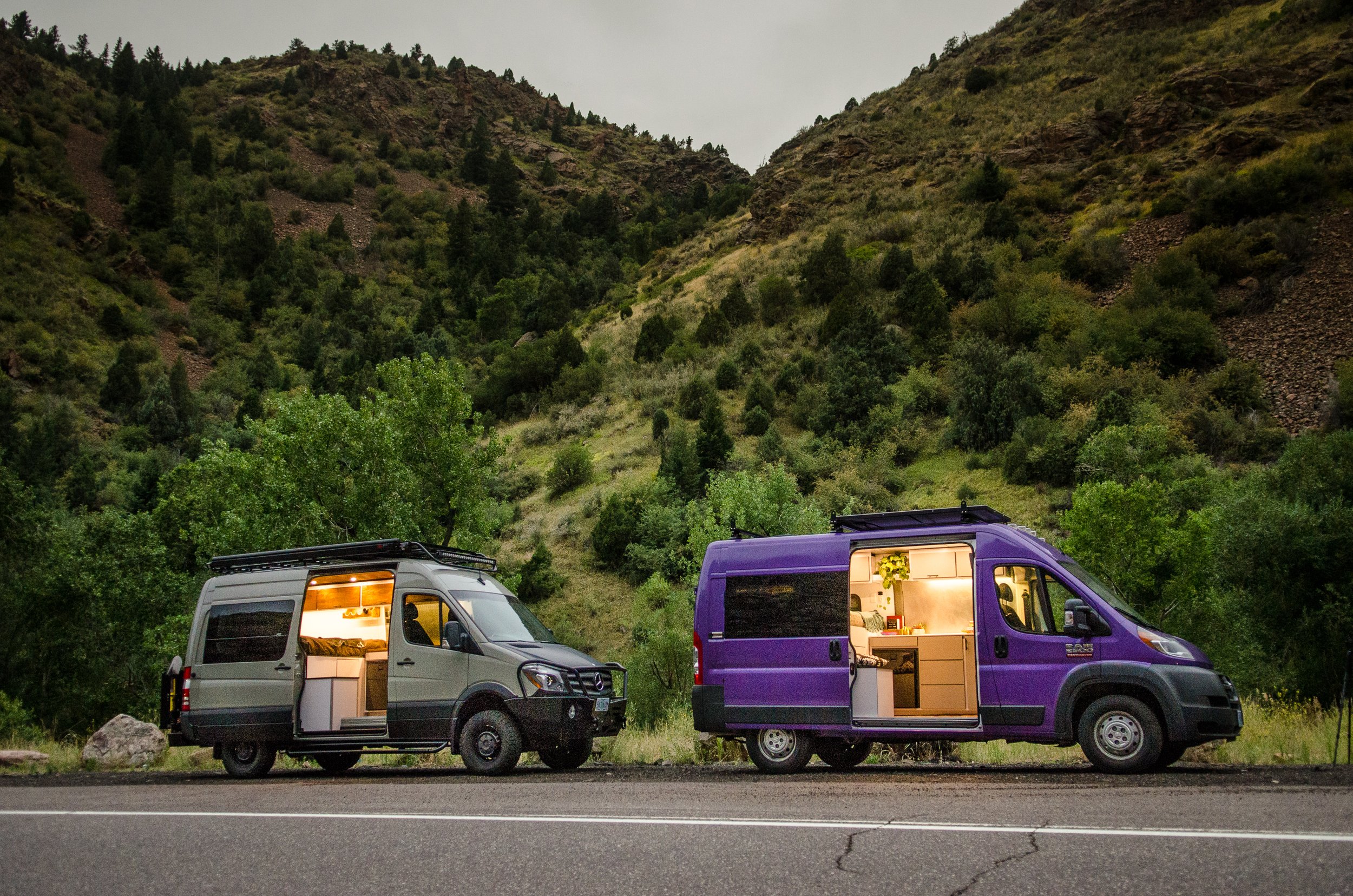Vanlife Insurance 201: The Top 3 Most Asked Van Insurance Questions
Are you confused about camper van insurance? Don’t worry, you aren’t alone!
Navigating the insurance landscape (especially if you have a DIY conversion) can be a bit daunting, but our local van insurance guru, Mark Myers, is here to help! As a follow up to his Vanlife Insurance 101 blog, we asked Mark to answer a few of the most frequently asked insurance questions.
Without further ado, here are the top 3 most commonly asked van life insurance questions of 2022:
By Insurance Expert, Mark Myers
“I converted my van myself, how do I get it insured?”
Navigating insurance for a self-conversion can be frustrating to say the least. Rules vary state-by-state and insurer-by-insurer, so there isn’t a perfect answer. That being said, there are some general guidelines that are pretty consistent across the board.
Most insurers require these seven PERMANENTLY INSTALLED components to be eligible for an RV insurance policy.
Most insurers have a minimum qualification of the following permanently installed components to be eligible:
separate climate control (vent fan, heater, etc.)
bed
separate electrical
cooking facilities
plumbing
refrigeration
toilet
** POTENTIAL ROADBLOCKS
We know you worked hard on your conversion or paid good money for it, but sometimes insuring a van is a little too risky for underwriters. Here are few potential roadblocks that might prevent an underwriter from approving a policy for your rig:
Quality: The quality of the build is important. Often, insurers will require photos of self-converted build outs before approving coverage.
Market Value and Age: If a self-converted van’s market value is on the lower end, or if your van is over 15-20 years old, you will have a hard time getting underwriters to approve a policy for it.
Previous Ownership: If you have a vehicle that was ever previously used commercially (owned and used by a business or government), you will very likely be required to obtain commercial vehicle insurance because it will not be accepted by most personal lines insurers.
Weight: If your vehicle weighs a lot (ex: school bus conversion) you will very likely only be eligible for commercial insurance due to the weight alone.
“How much should I insure my van for???”
In general, van insurance policies allow you to select the value you want to insure your van for. If you spent $100k total on your van and the conversion, you should insure the van for $100k. It’s critical to retain all documentation of what you’ve spent so in the event of a total loss you have proof of the cost.
For professional builds this means keeping the vehicle bill of sale and the invoices from the conversion shop.
For self builds this means the vehicle bill of sale and receipts for material and parts purchased.
Accidents happen, ask “other Doug”. Good thing he has an awesome RV insurance policy for his conversion.
“My van is at a shop being converted, what kind of insurance do I need?”
If you buy your van and you own it during the conversion, add it to your existing auto policy like a regular passenger vehicle. When the van is 100% complete, it will then be eligible for an RV policy, and you’ll want to have the new policy in force the day you drive your conversion home.
Pro tips:
There are some general do’s and don’ts when it comes to campervan insurance.
DO NOT claim that your van is not your full-time residence when it is. If you live in your van more than six months out of the year, most insurers consider you a full-timer. Even though it costs less to say you are not a full-timer, it could be regarded as insurance fraud and that’s no joke. Any claims could get declined entirely.
DO NOT get insurance just by adding the van to your current policy. Customized van insurance premiums vary wildly between companies. You are far better off financially to get a separate policy with a different company than you currently use in many cases.
DO get a quote more than two weeks before you need the insurance. Many carriers offer a discount called ‘advance quote’. Cha-ching.
DO pay in full upfront and pay with EFT (checking account) instead of credit card to get the lowest possible price.
For more insurance tips, tricks, and quips check out our Insurance 101 blog. If you have more in depth questions, contact Mark (info below), he knows way more about this stuff than we do :)
Safe travels!
Mark Myers is an insurance brokerage owner in Wheat Ridge, CO who specializes in helping personal and commercial clients insure custom vans, homes, and autos. He has insurance partners licensed in 40 U.S. states who can help with conversion van insurance. He’s an enthusiastic mountain biker and vanlifer who loves to explore the region with his wife Alyssa and dog Quigley.









